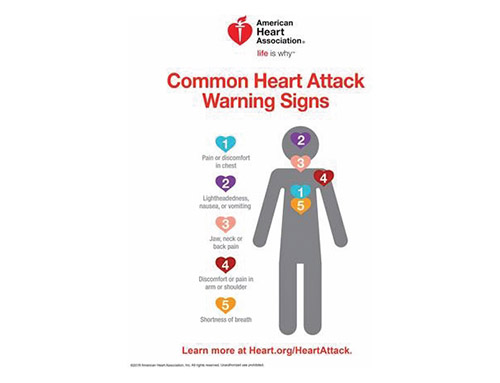
(Courtesy of St. Mary’s General Hospital) While COVID-19 is still primary in the minds of most people, we at St. Mary’s General Hospital want to caution people not to delay care and to visit the emergency room if you are experiencing emergencies such as heart attacks or strokes, where early diagnosis and treatment can be lifesaving!
The pandemic is not over, but we are seeing more non-COVID patients in the ER than we have in the past month. Recent trends suggest that patients are not seeking care for emergencies, and delays in diagnosis are leading to poor outcomes. Stay-at-home orders issued by public health agencies make exceptions for those in need of emergency medical treatments. Those experiencing signs of a heart attack or stroke, such as chest pain or sudden muscle weakness, should call Hatzolah or 911 or visit the emergency room immediately. St. Mary’s General Hospital is well prepared to handle non-COVID emergencies and has special expertise in the following areas:
• State Certified Stroke Center
• State Designated Heart Center & STEMI Program
• Specialized Senior Care Unit
St. Mary’s General is following all state, local and federal guidelines to safeguard our staff and protect other patients from exposure.
Those experiencing mild flu-like symptoms should consult with their primary care physician while taking precautions to self-isolate and limit contact with family members while at home. Those with symptoms that worsen, including a consistent cough and fever, should visit an emergency room as soon as possible.
How do you know if you are experiencing a heart attack or stroke?
Warning Signs of a Heart Attack
Catch the signs early. Don’t wait to get help if you experience any of these heart attack warning signs. Some heart attacks are sudden and intense. But most start slowly, with mild pain or discomfort. Pay attention to your body and call Hatzolah or 911 if you experience:
• Chest discomfort. Most heart attacks involve discomfort in the center of the chest that lasts more than a few minutes—or it may go away and then return. It can feel like uncomfortable pressure, squeezing, fullness or pain.
• Discomfort in other areas of the upper body. Symptoms can include pain or discomfort in one or both arms, the back, neck, jaw or stomach.
• Shortness of breath. This can occur with or without chest discomfort.
• Other signs. Other possible signs include breaking out in a cold sweat, nausea or lightheadedness.
Stroke Symptoms
By learning and sharing the F.A.S.T. warning signs, you just might save a life from stroke.
Use the letters in “F.A.S.T.” to spot stroke signs and know when to call 911.
Face Drooping
Does one side of the face droop or is it numb? Ask the person to smile. Is the person’s smile uneven or lopsided?
Arm Weakness
Is one arm weak or numb? Ask the person to raise both arms. Does one arm drift downward?
Speech
Is speech slurred? Is the person unable to speak or hard to understand? Ask the person to repeat a simple sentence.
Time to Call 911
If the person shows any of these symptoms, even if the symptoms go away, call 911 and get them to the hospital immediately.
The quicker the patient comes to the ER the better chance we all have to help that patient and save their life. So, while COVID-19 may be all over the news today, and our community may be justifiably concerned, it doesn’t mean that other potential life-threatening health concerns should be ignored.
For additional information please contact the community liaison, George Matyjewicz, PhD, at [email protected].
St. Mary’s General Hospital is located at 350 Boulevard, Passaic. They can be reached at 973-365-4300 or at https://
www.smh-nj.com/.













